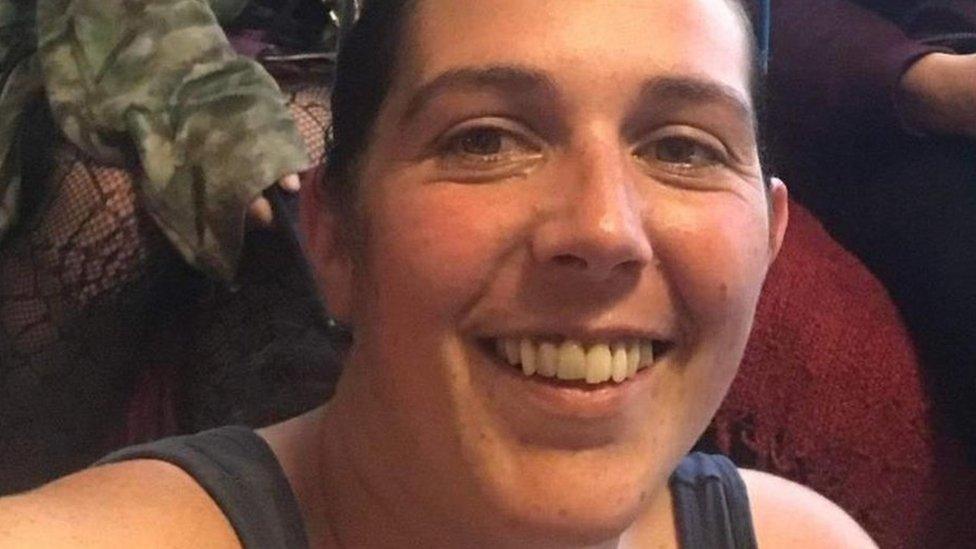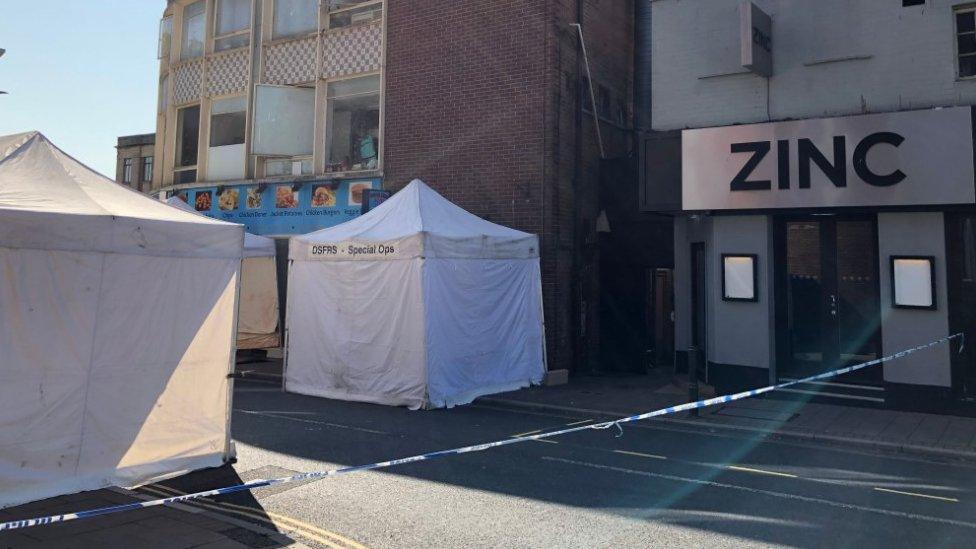Lorraine Cox: Murder accused says woman died at flat
- Published

Lorraine Cox, 32, was last seen on 1 September in Exeter city centre
A man accused of killing and cutting up a woman has claimed that she died at his flat but that he did not kill her.
Azam Mangori, 24, said Lorraine Cox, 32, took drugs at his Exeter home, but a court was told tests showed no trace of drugs.
Ms Cox went missing after a night out in Exeter on 1 September, Exeter Crown Court heard.
Mr Mangori, of Dartmouth Road, Stoke-on-Trent, denies murder but admits preventing a lawful burial.
Prosecutors say Mr Mangori followed her through the streets as she walked home from a night out with friends and persuaded her to go home with him.

Azam Mangori lived above a kebab shop where he allegedly killed Lorraine Cox
They say he killed her at his flat above a kebab shop in Exeter City Centre before cutting her body into at least seven pieces and dumping her remains in an alley off Mary Arches Street and woodland at Newton St Cyres, about six miles (9km) away.
Mr Mangori submitted a defence case statement claiming that he did not know how she died but that she took drugs while at his flat.
Ms Cox had diabetes, but an expert has told the jury that tests on her body suggest that this was not what caused her death.
Toxicology expert Alicia Pitcher said no traces of drugs were found in samples recovered from muscle, the liver, or cavity fluid.
She said she would have expected to find metabolites of cocaine or other recreational drugs if they had been taken in large amounts shortly before death.
The trial continues.

Follow BBC News South West on Twitter, external, Facebook, external and Instagram, external. Send your story ideas to spotlight@bbc.co.uk, external.
Related topics
- Published12 March 2021

- Published11 March 2021

- Published8 March 2021

- Published5 March 2021

- Published4 March 2021

- Published3 March 2021

- Published2 March 2021
